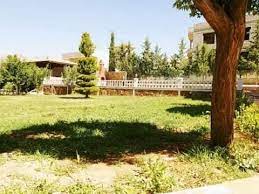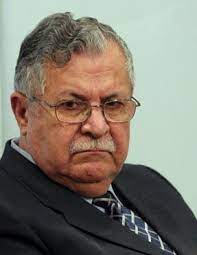Yesterday, Damascus confirmed its readiness to resume negotiations from the point at which they stopped, provided that Tel Aviv accepts the commitment made by the former Israeli government headed by Yitzhak Rabin to withdraw to the lines of June 4, 1967. On the other hand, it warned of the dangers of the “demonic alliance” between Israel and Turkey, calling on Amman not to join it.
Syrian Vice President Abdel Halim Khaddam announced before the expanded meeting of the secretaries of the branches of the Arab Socialist Baath Party and the governors of the Syrian governorates that Damascus is ready to resume peace negotiations with Israel from the point at which these negotiations stopped. Therefore, the government of Benjamin Netanyahu confirmed its acceptance of the commitment made by the previous Israeli government headed by Yitzhak Rabin to withdraw to the lines of June 4, 1967.
Khaddam, who was speaking in the presence of Assistant Secretary of Qatar, Dr. Suleiman Qaddah, Prime Minister Mahmoud Al-Zoubi, members of the Qatari leadership of the Baath Party, ministers, and senior party and government officials, referred at the beginning of his report to the stalemate in the peace process due to Israel’s evasion of the peace talks and the foundations of the peace process. He said that the current Israeli government’s policy and the Israeli concept of peace, based on continued occupation, settlement policy, and rejection of the authority on which the peace process was based, will not lead to achieving a just and comprehensive peace in the region. Furthermore, he stated that the Israeli government seeks to impose the Zionist project on the Arab nation.
He explained that Israel’s efforts to maximize and amplify its military power and establish an alliance with Turkey aimed at imposing hegemony and control over the Arab land and the Arab nation, as well as causing divisions in the Arab and Islamic worlds, were among the objectives of this alliance. Additionally, it was aimed at putting pressure on neighboring Arab and Islamic countries to control natural resources and wealth in those countries.
Khaddam stressed Syria’s commitment to the peace process and its readiness to resume peace negotiations from the point at which they stopped. This came after the current Israeli government announced its acceptance of the previous government’s obligations related to withdrawal to the lines of June 4, 1967, and the comprehensiveness of peace based on the terms of reference on which the peace process was based, including the principle of land for peace.
Khaddam discussed the foundations of the peace process and the commitments made by the United States towards achieving a just and comprehensive peace in the region. He specifically mentioned resolutions 242 and 338, as well as resolution 425 on the withdrawal from southern Lebanon and western Bekaa. He called on the United States to fulfill its duties in implementing the American initiative accepted by Syria but rejected by Israel.
To address the dangers posed by Tel Aviv’s policies and its efforts to establish an Israeli-Turkish alliance hostile to Arabs and Muslims, Khaddam called for effective Arab solidarity. He emphasized the need to raise Arab awareness about the planned strategies for the Arab nation, implement economic planning at the Arab world level, expedite the establishment of a common Arab market, and expand the Arab free trade zone. These measures were seen as crucial due to the significance of economic relations in international affairs and the necessity for the Arab world to adapt to the era of globalization by modernizing institutions, improving the well-being of citizens, and preparing individuals capable of responding to globalization’s challenges and opportunities.
Khaddam referred to the situation among the Arab and Islamic populations, highlighting the oppression they face as a result of Israel’s threat and aggression. He emphasized the need for a comprehensive Arab review to address these challenges and propel national advancement in the face of international changes.
Khaddam stressed Syria’s awareness of its national responsibilities under the leadership of President Hafez Al-Assad. He called for the strengthening of joint Arab action in political, economic, cultural, and security domains, with a focus on safeguarding Arab rights, including the comprehensive liberation of occupied Arab territories and the restoration of the legitimate national rights of the Palestinian people.
On the second day of the meeting, the branch secretaries and governors dedicated their discussions to political affairs, Arab and international situations, and the state of the nation. This segment of the meeting held significant importance and was considered one of the most pivotal gatherings within the Qatari Congress and the Central Committee of the Arab Socialist Baath Party.
There was a strong demand to listen to Khaddam’s political report and an eagerness to ask him questions regarding the Arab, regional, and international situation.


